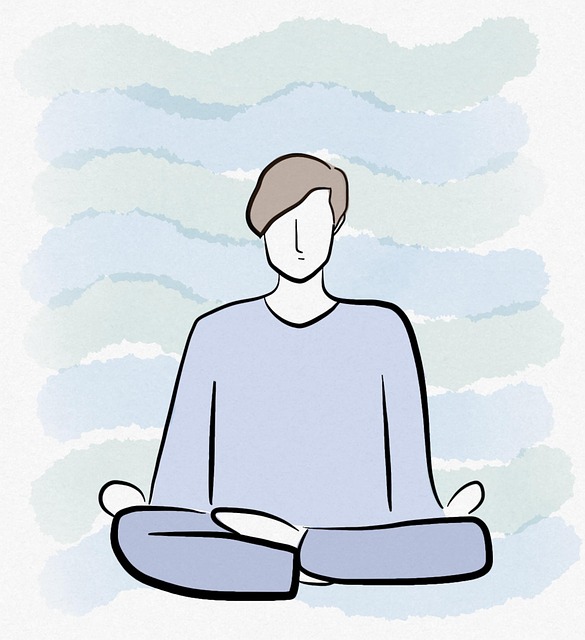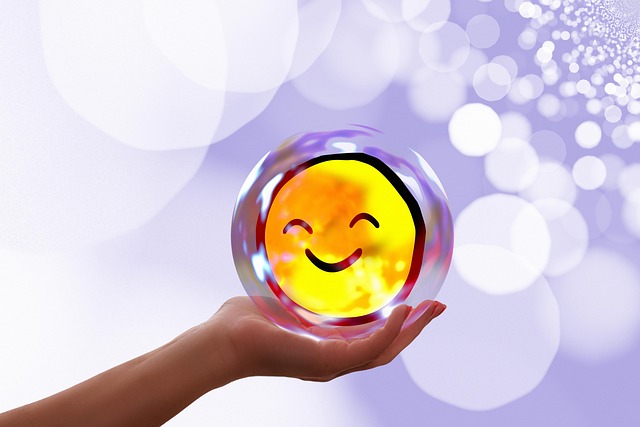Mindfulness meditation is a powerful tool for navigating life's significant changes, like career shifts or relationship endings, through emotional resilience and coping mechanisms. Centennial Major Life Transitions Therapy focuses on holistic well-being for centenarians, helping them manage challenges and enhance quality of life. Preparing your mindset with positive thinking and emotional intelligence exercises optimizes mindfulness training benefits. Regular breathing exercises and consistent daily practice reduce stress and improve overall well-being. Integrating mindfulness into daily routines fosters mental health maintenance and resilience during significant life changes, supported by culturally competent therapy and community outreach programs.
“Uncover the transformative power of mindfulness meditation as a guiding tool through life’s transitions. This comprehensive guide explores how centuries-old practices can aid in managing major life changes and stress. From understanding the science behind mindfulness’s therapeutic benefits to practical strategies for integrating it into daily routines, you’ll discover effective techniques for long-term success. Prepare your mindset, embrace evidence-based practices, and learn to cultivate a mindful approach that enhances well-being during transitions.”
- Understanding Mindfulness Meditation for Life Transitions
- The Science Behind Mindfulness and Its Therapeutic Benefits
- Preparing Your Mindset: Strategies Before Starting a Practice
- Techniques and Practices for Effective Daily Meditations
- Integrating Mindfulness into Everyday Life: Long-term Success Tips
Understanding Mindfulness Meditation for Life Transitions

Mindfulness meditation has emerged as a powerful tool for navigating Centennial Major Life Transitions Therapy. As individuals face significant changes like career shifts, relationships ending, or the loss of a loved one, mindfulness offers a way to cultivate emotional resilience and enhance coping mechanisms. By focusing on the present moment without judgment, individuals can learn to observe their thoughts and emotions without becoming overwhelmed, fostering better emotional healing processes.
This practice is particularly beneficial in preventing burnout, a common issue during life transitions. Mindfulness meditation encourages self-awareness, helping folks recognize signs of stress early on. Through regular practice, anxiety relief becomes more attainable as individuals develop a deeper understanding of their triggers and learn to respond rather than react to challenging situations.
The Science Behind Mindfulness and Its Therapeutic Benefits

Preparing Your Mindset: Strategies Before Starting a Practice

Before beginning mindfulness meditation practice, preparing your mindset is crucial for a successful and meaningful journey. This involves setting an intention that aligns with your personal goals, whether it’s managing stress during a busy work week or cultivating emotional resilience following a major life transition. Centering yourself on these objectives will help guide your focus and enhance the therapeutic benefits of therapy.
Engaging in practices like positive thinking, conflict resolution techniques, and emotional intelligence exercises beforehand can also optimize your mindset for meditation. These strategies encourage self-awareness, emotional regulation, and a non-judgmental attitude—all essential components for effective mindfulness training. By cultivating these skills proactively, you’ll be better equipped to navigate the introspective nature of meditation and reap its long-lasting mental health benefits.
Techniques and Practices for Effective Daily Meditations

Mindfulness meditation is a powerful tool for navigating life’s challenges and promoting overall well-being, especially during significant life transitions. This ancient practice involves focusing on the present moment, cultivating awareness, and accepting thoughts and feelings without judgment. For those seeking guidance in their daily meditation routine, several techniques can significantly enhance effectiveness.
One effective strategy is to incorporate breathing exercises into your practice. Simple mindfulness breathing involves paying attention to your breath as it flows in and out of your body. This technique helps calm the mind and body, reducing stress and anxiety. Additionally, setting aside dedicated time for meditation each day, even for a few minutes, allows you to develop a consistent routine. Regularity is key; over time, daily practice can lead to profound changes in coping skills development and self-esteem improvement. Consider joining a meditation group or utilizing online resources for guided sessions, especially during major life transitions when therapy might be beneficial. These resources offer support and help create a sense of community, fostering a deeper understanding of mindfulness principles.
Integrating Mindfulness into Everyday Life: Long-term Success Tips

Integrating mindfulness into your everyday routine can be a powerful tool for navigating life’s challenges and fostering long-term mental well-being. Beyond short meditation sessions, cultivating mindfulness is about adopting a present-moment awareness that permeates all aspects of daily life. This means paying close attention to your senses, emotions, and thoughts without judgment, allowing you to respond rather than react during stressful situations. For instance, during a hectic day, take a few mindful breaths before tackling tasks, or practice eating slowly and mindfully to enhance digestion and appreciation for meals.
As individuals navigate major life transitions, such as career changes or personal milestones, mindfulness can offer resilience and perspective. Engaging in regular meditation practice may help manage anxiety and stress related to these shifts. Moreover, integrating mindfulness into your life journey supports mental health maintenance, especially when coupled with culturally competent therapy services and mental illness stigma reduction efforts. For those seeking long-term success, incorporating mindfulness techniques into daily habits can be a game-changer, enhancing overall quality of life and fostering resilience during both calm and turbulent times. Community outreach programs focused on teaching mindfulness practices have the potential to empower individuals and communities alike, leading to more balanced and fulfilling lives.
Mindfulness meditation isn’t just a trend, but a powerful tool for navigating life’s transitions and reaping significant therapeutic benefits. By integrating this practice into your daily routine, you can enhance emotional resilience, reduce stress, and improve overall well-being. The strategies and techniques outlined in this article provide a solid foundation for beginners, while long-term success tips ensure mindfulness becomes an integral part of your everyday life. Embracing mindfulness on this journey could be the key to thriving through even the most significant Centennial Major Life Transitions.










